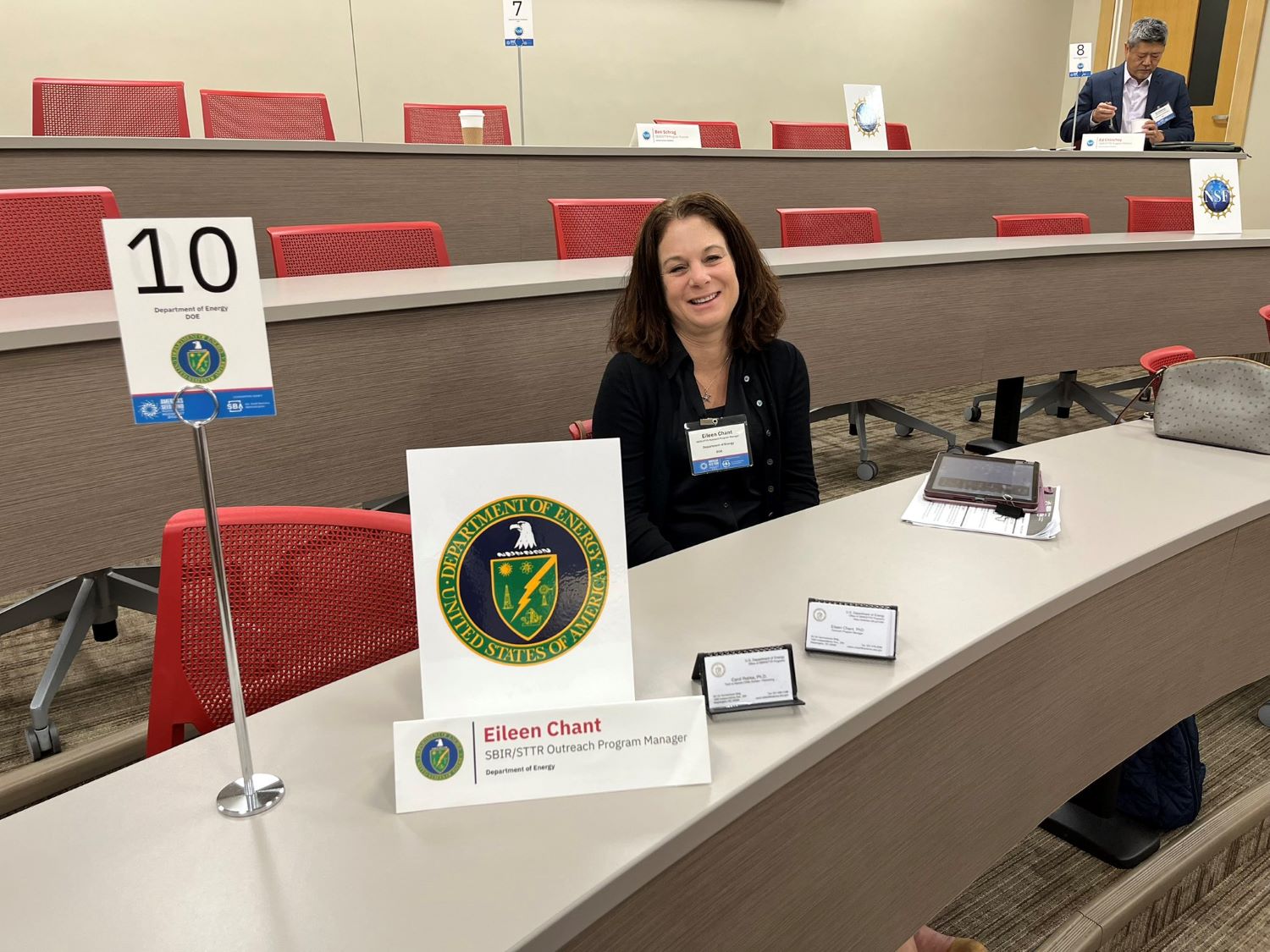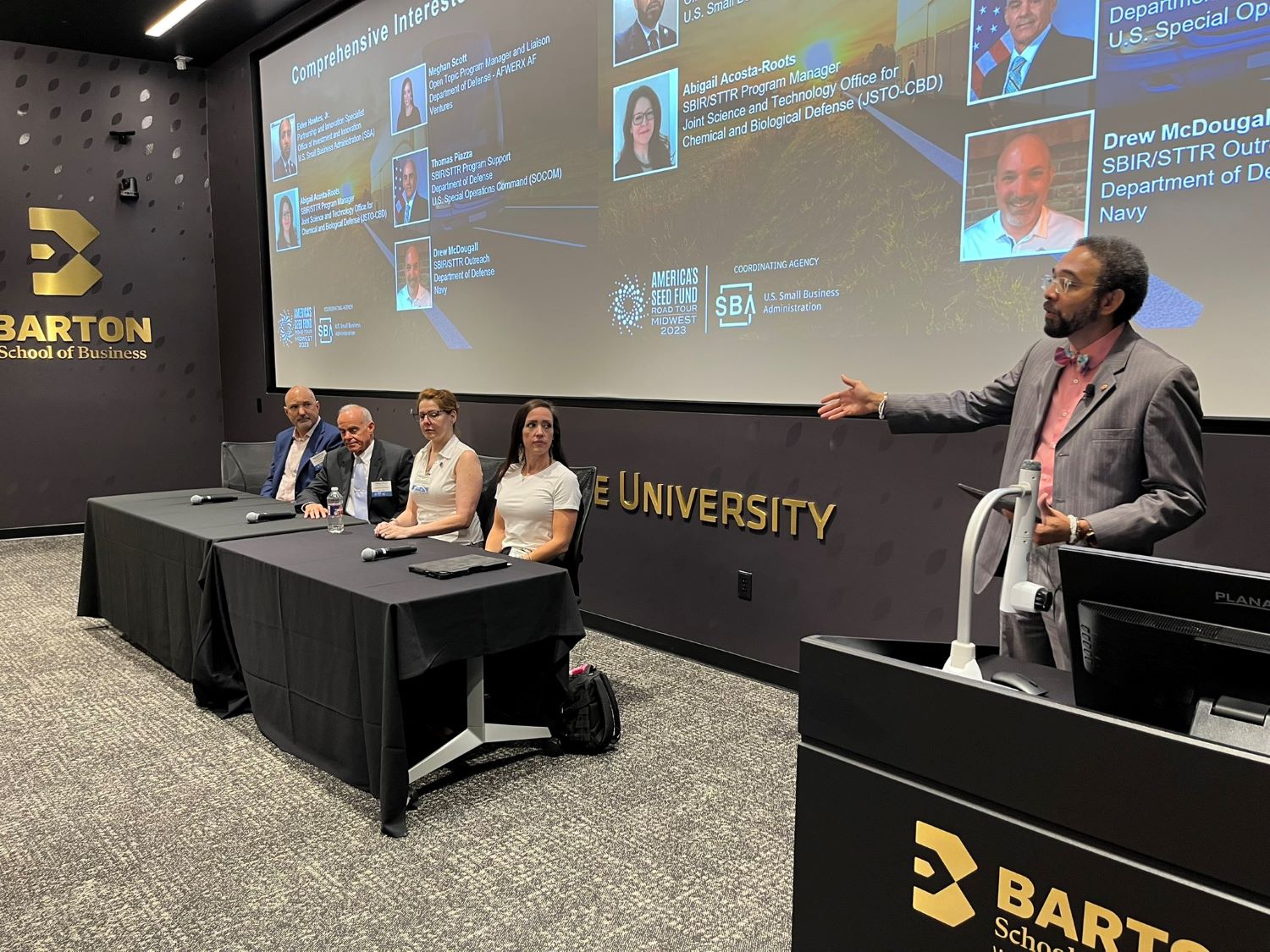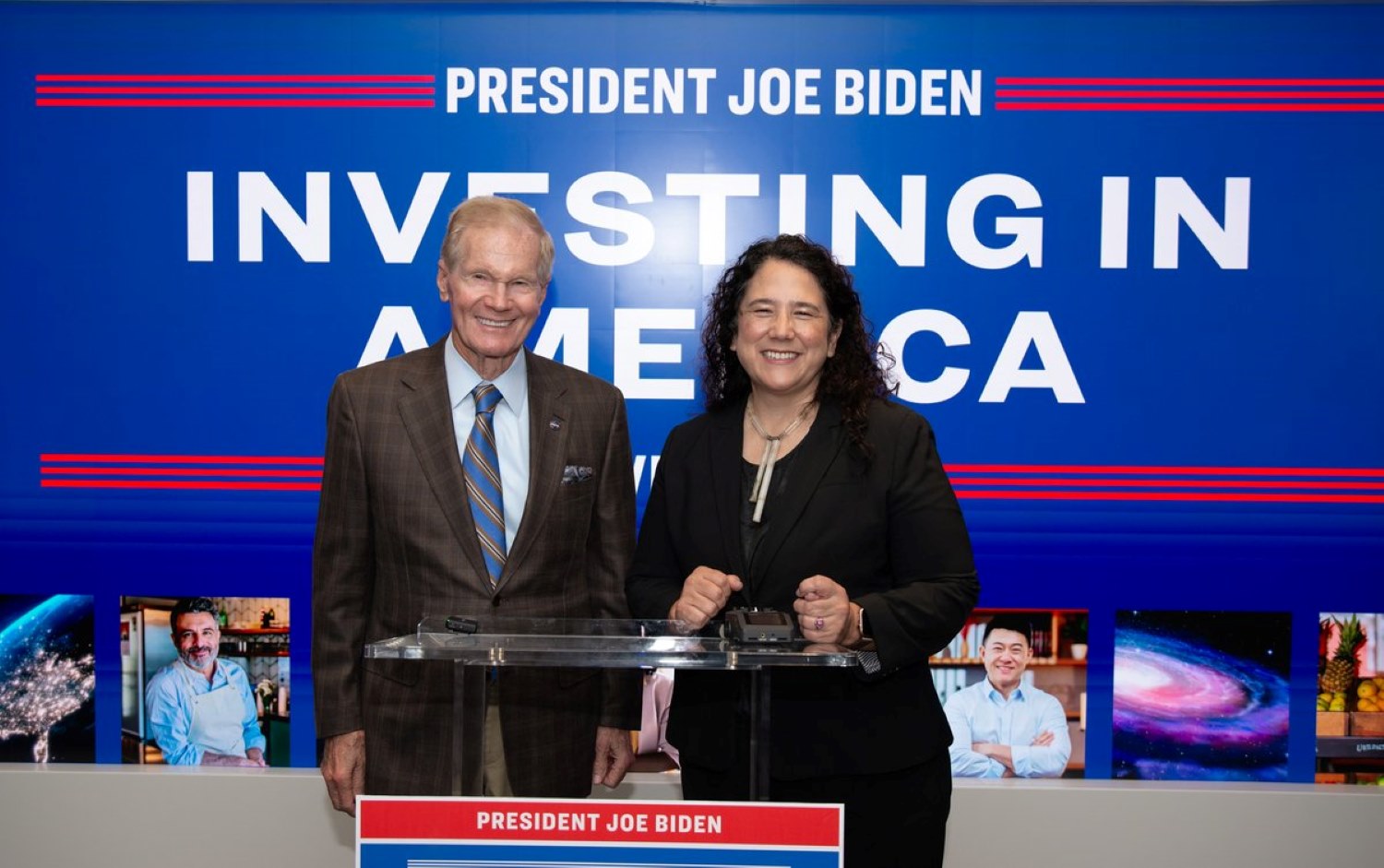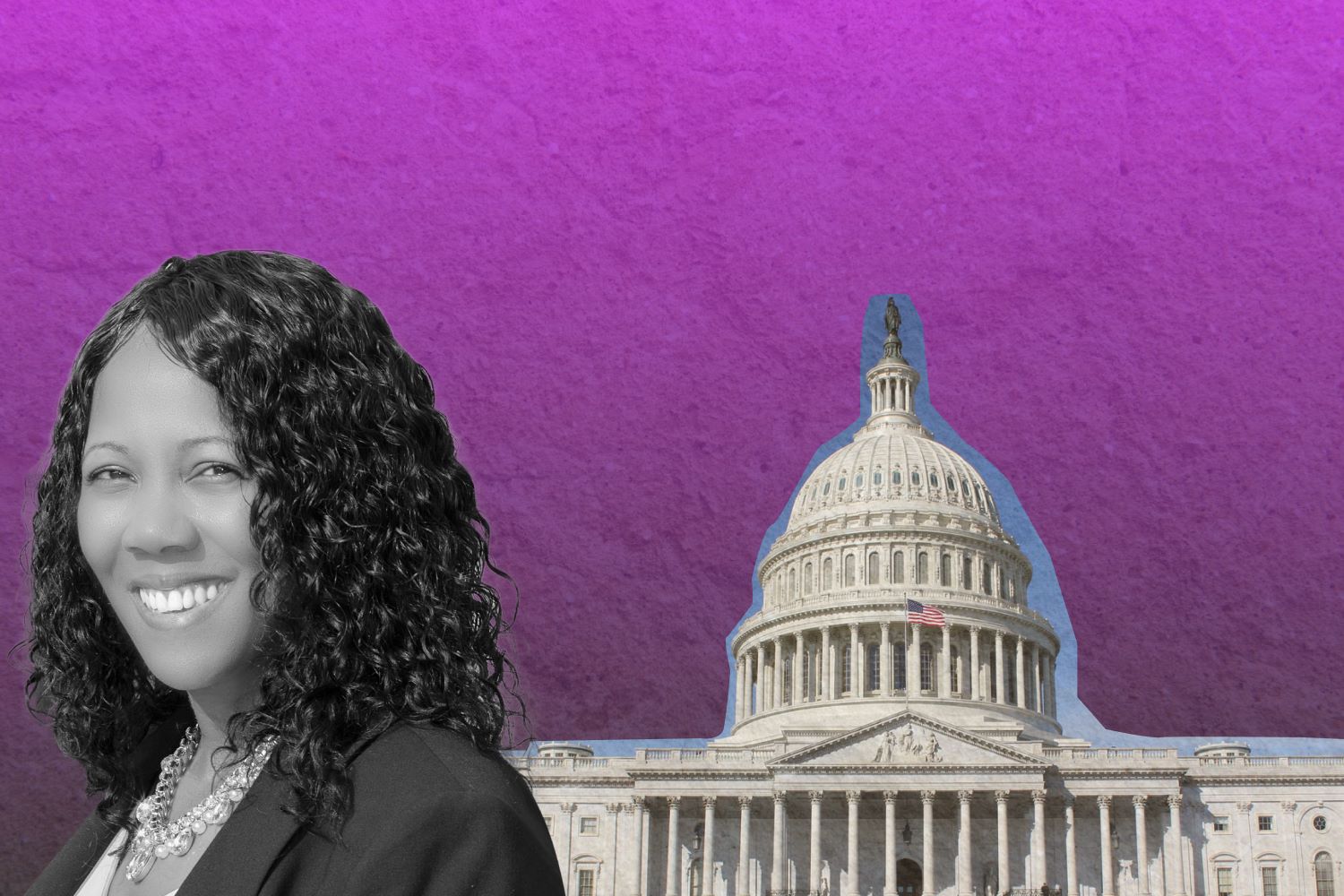The Determination Brought Kimberly Kidd from 0 to 60 In Federal Contracting
It’s good to be able to perform meaningful work and be surrounded with chill people at the workplace. But for some people, they are trying to pass every single day with repeatable tasks and see no growth potential.
Your reason for being sick of working for someone else may be that you know you can be performing at a higher level doing what you’re passionate about, but you’re stuck in a rut in an unfulfilling position, and you’re not sure how to branch out on your own.
This happened to almost every entrepreneur in the first step of getting out of their comfort zone and branching to new places with abundant opportunities. Just as Kimberly Kidd, who is the president and CEO of Fillmore Contracts.
Starting from scratch, she has been pushing limits and has made 1.7 Million Dollars in Government Contracts in less than 2 years, she even won work in field where she did not have experience.
People might think that securing resources from the government takes a lot, but this article, as inspired by Kimberly Kidd story will change your mindset of the possibilities in winning federal contracts. Besides, the writing contains full of gold nuggets to help you stay up on the way to government grants.
Woman-Owned Business Built from Scratch Thrived
Kimberly Kidd started her business in January 2020, and to date, Kim and her team have completed approximately 25 government contracts, generating around 1.7 million in revenue. This is phenomenal for the reason that there are businesses who have been in place for many years and may have may just be at a couple hundred thousand.
Kim’s journey into federal contracting began like many others. She was working for a big multinational consulting firm, one of the big four, where she saw limited growth potential. Feeling the desire to be in control of her own worth and income, Kim decided to take the leap and start her own business. Initially, she wasn’t sure what type of business to pursue, but as she researched various options, she stumbled upon YouTube videos and resources about winning federal contracts.

Intrigued by the possibilities, Kim delved deeper into the world of federal contracting. She explored online classes and eBooks provided by the Small Business Administration (SBA) to gain more knowledge about the process. As she continued her research and understanding of the industry, she realized that federal contracting could be the path she wanted to pursue.
With determination and enthusiasm, Kim established her own business and followed the necessary steps to get registered and certified in order to start bidding on federal contracts. Taking advantage of various resources and classes, she began her journey into federal contracting, eager to explore the opportunities and challenges that lay ahead. And so, her entrepreneurial venture into the world of government contracts began.
Kim’s first contract in the federal contracting world was a surprising and exhilarating experience for her. What astonished her even more was that she secured the contract despite not having any personal experience in the specific area related to the project. The contract itself was substantial, amounting to four hundred thousand dollars, and involved replacing HVAC units.
Although HVAC wasn’t Kim’s background, she approached the opportunity as an entrepreneur and business owner. Her expertise lies in securing the necessary resources to execute contracts effectively. Instead of attempting to handle the work herself, she knew she could rely on hiring competent personnel and subcontractors to handle the technical aspects of the job.
Taking charge of the situation, Kim personally wrote and submitted the entire bid proposal for the contract. Her confidence and determination paid off, and her company was awarded the contract. With the contract in hand, Kim wasted no time and quickly enlisted the subcontractor to commence the work.
According to Kim, “I think the reason being is I always say to people that people do business with people, you know, and it stands true with the federal government. People do business with people. The thing is, a lot of people say, ‘Okay, well, I don’t have experience doing this, so I’m a notary, and I need to sell notary services.’ The idea is to move yourself out as the employee and put yourself in as the boss or the owner of that business.”
She also added, “If you’re the owner, your job is to hire skilled resources and talented people to perform work under these contracts. If you’re doing that, the experience of your people becomes the experience of your company. You get what I’m saying? Because the company is only as good as the people that work there.”
Identify Your Function in the Game and Leverage Networking
Regardless of whether Kim possesses HVAC knowledge or not, the crucial factor is the expertise of the individual who will execute the contract, particularly if Kim has 20 plus years of HVAC experience. Kim’s proficiency in carrying out the work is sufficient, as Kim possesses the necessary skills.
As a CEO, Kim oversees operations from behind the desk, and Kim’s personal HVAC experience becomes less relevant because the actual workforce possesses the required expertise. Kim’s role as a CEO involves knowing how to effectively apply and acquire qualified resources. Securing these skilled resources is vital for Kim to successfully execute various contracts, and that is precisely what Kim focuses on here.
Some people might think it’s a dauting task to do. However, according to Kim, the process of breaking through those challenges and finding skilled contractors for HVAC projects is not as difficult as it may seem.
She said, “The key is to approach it in a way similar to how you would handle an HVAC issue in your own home. Just like you would call a local HVAC technician to fix your unit, in Federal Contracting, you reach out to contractors who are proficient in HVAC and mechanical work.”
“Building relationships with these contractors is essential, even if you don’t have a contract at the moment. By establishing connections within the industry and nurturing supplier relationships, you are laying the groundwork for future collaborations.”
As shared by Kim, even before securing a contract, you proactively built relationships with these skilled contractors.
This way, when a project arose, you already had a network of reliable professionals to collaborate with, enabling you to submit competitive bids for the job. Their expertise and experience in HVAC work complemented your knowledge of sourcing and managing qualified resources.
By fostering these connections and teaming up with contractors who have the necessary skills, you gained a significant advantage in Federal Contracting. It’s all about recognizing that success comes from working together with the right people, leveraging their expertise to achieve mutually beneficial outcomes.

Furthermore, she highlighted the value of building strong supplier relationships from the outset. Establishing partnerships with suppliers, even before securing contracts, can lead to more competitive pricing on bids, ultimately increasing the chances of winning contracts.
Kimberly encouraged reaching out to potential suppliers in the industry, whether for construction materials, IT equipment, or any other required resources.
A Business’ Success Story Post-Winning Contracts
As shared by Kim, “After winning a contract, I understand that the next steps can be daunting, especially when it comes to financial matters.”
As a small business, having limited funds to initiate projects, whether they are worth $400 or $20,000, can pose significant challenges. However, there are resources available to help companies navigate this phase.
One option worth considering is partnering with factoring companies. Factoring companies allow you to factor your invoices, meaning you can receive immediate payment for completed work instead of waiting for the government’s 30-day payment cycle.
Some contracts, such as those in construction or specialty contracting, offer the option of progress billing. This means you can bill for specific milestones or completed portions of the project, which can provide you with regular cash flow throughout the contract’s duration.
Researching these financing options well in advance is crucial, even before bidding on contracts. While some factoring companies may require you to have won a contract before providing terms, having identified a suitable company, and having your financials ready can expedite the process once you secure the contract.
By proactively exploring financing alternatives, you can alleviate the financial barriers that often accompany starting new projects. This way, you’ll be better prepared to handle the post-win phase and ensure a smoother and more successful experience as a government contractor.
“When it comes to working with the federal government, I must say it’s not easy, but one thing I really appreciate is how structured it is. With the federal government, I know exactly when I’ll get paid, and that predictability allows me to plan my finances better. I can create a payment schedule or forecast based on the contracts I receive, which is a great advantage.” Said Kimberly Kidd.
The best part is that the federal government itself becomes Kim’s collateral when dealing with factoring companies. They see the reliability of government payments, and it builds trust in her ability to secure funds. This means she doesn’t necessarily need a lot of her money to get started.
She said, “In fact, for my first contract, I didn’t have to put up any of my own money. I utilized factoring for the entire contract, and it worked out really well for me.”
Her advice to others is to explore the available options and consider factoring companies as part of their financial strategy. With proper planning and utilization of resources, people can navigate the financial aspects of government contracting successfully as she did.
The Key to Success Lies in Having a Means to Deliver
In the beginning, she admits to being eager to win contracts without fully understanding what would happen if she succeeded. This mindset led to several learning experiences, prompting her to encourage others to approach business differently.

Kimberly emphasizes the importance of starting with a solid understanding of the business itself. This involves knowing how to finance the business, the methods for executing projects and contracts, and establishing a front-end process for business development and capture management.
Additionally, she stresses the necessity of setting up a well-organized back office, including essential functions like payroll, ahead of time. Proper preparation becomes crucial since winning a contract can be extremely challenging to navigate within the short timeframe provided, sometimes as little as 30 days.
Another lesson learned by Kimberly was to familiarize herself with the bidding process. In the past, her company submitted full technical proposals for contracts that didn’t require such elaborate submissions, resulting in wasted time and effort. Understanding how to interpret solicitation requirements and knowing what needs to be included in a bid can significantly improve the chances of winning relevant contracts.
Kimberly acknowledges that her company secured some contracts based on the lowest price technically acceptable (LPTA) criteria, rather than technical excellence. This realization prompted her to stress the importance of knowing how to bid appropriately for different opportunities.
The hardest part, according to Kimberly, is executing contracts once they are won. Celebrating the win is short-lived, as the real challenge lies in delivering on the promises made during the bidding phase.
This requires a well-established and efficient means of delivering the contracted work. She advises that having a means to deliver prior to winning contracts is essential to avoid being in a difficult position after winning the bid.
She also said “One thing I learned about Federal Contracting is that news and reputation travel swiftly between agencies. Unlike in the commercial sector, where information may take longer to circulate, in federal contracting, it spreads rapidly. This means that the performance on one contract can significantly impact an individual’s entire career or a company’s business journey.”
Pushing Limits – Don’t Put All Your Eggs in One Basket
In the beginning, Kimberly Kidd had a limited perspective when starting her business in Federal Contracting. She initially focused on offering services based solely on her IT experiences, but soon realized the importance of diversifying her offerings.
Taking the advice not to put all her eggs in one basket, she understood the value of creating a comprehensive package of services. By broadening the range of services, her business could pursue multiple opportunities in the federal space, ensuring a greater chance of success.
Kimberly highlighted the significance of creating different divisions and packages for her business, encompassing various services. While it’s essential to have a well-defined focus, diversification enables a more adaptable and sustainable business model.
For example, her company, Fillmore Contracts, didn’t restrict itself to HVAC work after winning a specialty contract but expanded its scope to include facility operations, maintenance, construction, and more. This strategic approach allowed them to tackle different projects and maximize opportunities.

The CEO emphasized the importance of establishing a well-structured back office to effectively manage contracts. Proper management ensures that profits are safeguarded and that contracts are executed successfully.
For any entrepreneur aiming to grow their business, understanding their company thoroughly before engaging with the federal government is crucial. This knowledge enables the creation of repeatable processes, streamlining procurement and purchasing within the structured framework of the federal system.
While winning contracts is a significant goal, Kimberly emphasized that the real challenge lies in effectively managing the contracts once they are won. She advised focusing on the back office and implementing efficient management practices to avoid any pitfalls that might jeopardize the project’s success and profitability.
Kim said, “You not only know I need to know what to do to win, but you also need to know what to do to grow your business. Because like I said, winning is, I found that to be the easy part in the beginning. The first step was oh, I just need to win.”
“But you really don’t you know you once you win, it all starts from there, you know you have a lot, you have a long way to grow, and you can grow quickly like we did, or you can get one contract and never have another one in the business.”
Federal Contracting Opens New Doors for Small Businesses
For federal government contractors, the start of a new fiscal year is a thrilling moment. It’s an opportunity to start anew, to focus on growth, and to take advantage of some of the numerous, lucrative business opportunities provided by various federal government agencies.
According to White House officials, the federal government exceeded its small company contracting goals in fiscal 2022, awarding a record-breaking 26.5% of federal contracting dollars to smaller enterprises.
Despite an increase in federal spending on small company contracts, the marketplace saw a continuation of a nearly decade-long fall in the number of small businesses winning prime contracts. Women-owned small businesses got more over $26 billion in total eligible dollars in fiscal 2022, but the administration fell short of its target of awarding 5% of all federal dollars to women-owned businesses.
In addition, the government fell short of its target of 3% of set-aside contracts for historically underused business zone small firms, or HUBZone.
The Small Business Administration (SBA) has given the federal government an overall “A” rating in its annual scorecard evaluating small business procurement. According to the SBA, there were record-level contracting opportunities, totaling over $162 billion in federal funds, made available to small businesses across the country.

SBA Administrator, Isabella Casillas Guzman, stated that these federal investments in small businesses have been instrumental in supporting more than one million well-paying jobs in various industries such as manufacturing, construction, research and development, and other crucial sectors.
The federal government not only surpassed its contracting goals for small, disadvantaged businesses and service-disabled veteran-owned small businesses, but it also met its small business subcontracting goals by awarding nearly $80 billion in that particular category.
This scorecard release coincides with the White House’s efforts to enhance federal contracting opportunities for small and minority-owned businesses, including small, disadvantaged businesses.
After awarding a record $62.4 billion to Black-owned, Latino-owned, and other minority-owned firms in 2021, the White House upped government contracting targets for SDBs in 2022.
Bottom Lines
Small, disadvantaged businesses (SDBs) and other small enterprises encounter several institutional challenges while vying for federal contracting opportunities. These challenges include instances of fraud and misuse, where unscrupulous practices may undermine fair competition.
Moreover, larger corporations may take advantage of marginalized firms by engaging them in “pass-through” work. In such cases, big businesses exploit mentor-protégé programs to secure federal spending, potentially limiting opportunities for genuine small businesses and undermining the intent of these programs.
However, with key insights taken away from Kimberly Kidd from Fillmore Contract, the path to the throne may be more transparent since she has outlined the things companies need to do pre and post contract competing phase. However, small businesses still have a long way to go, and one thing for sure, hard work pays off.









